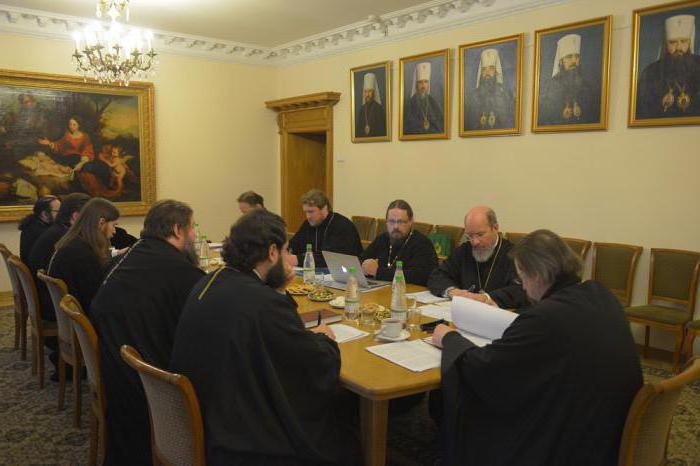Even from school, children superficially learn about the existence of different types of legal relations, how they arise, and also how they are regulated. However, in adulthood, much more knowledge is needed than the subject "Social Studies" can provide. Labor relations are an important part of human life, without which modern society cannot exist for a single day.

How they arise and are regulated, what special types of legal relations are, how labor disputes can be resolved, and a lot of other useful information can be gathered in this article.
Terminology
Labor relations - this is the relationship of the employer and the employee, which is paid according to the work done. Relationships are built on a non-mandatory basis, and are regulated in accordance with an agreement drawn up in relation to the Labor Code. The origin of labor activity and the grounds for the emergence of labor relations are determined by official duties. The employer may be a natural or legal person, owns an enterprise, institution or citizen authorized by him.
An employee can be considered a citizen working under an employment contract with individuals, a member of a cooperative or a worker at the enterprise.
Features
According to the Labor Code, labor relations have a significant difference from civil ones. Among them, the following features can be distinguished:
- They have a two-sided and unforced character.
- They have a specific duration, are not limited to performing one task.
- The object of labor relations is the process of labor and its payment.
- There are subjects of labor relations.
- The employee performs personal tasks through labor.
- Labor activity corresponds to the position.
- A clear delineation of the labor task occurs according to the internal regime.
- The beginning of a labor relationship is considered permission to start work.
- Termination is considered to be the dismissal and receipt of the work book by a citizen.
Appearance conditions
Labor relations are regulated by law and may appear in the event of:
- Election of a candidate for a position corresponding to qualifications.
- Election on a competitive basis of a candidate for the relevant labor activity.
- Admission to the post.
- Directions to work by the authorized body on account of the existing quota.
- Court decisions on the signing of an employment contract.
- Permits to begin direct duties from the employer at the expense of the guarantee in case of improperly drawn up contract.

According to article 17 of the Labor Code of the Russian Federation, a labor relationship also arises as a result of elections if the candidate corresponds to the elected position. Thus, one of the following types is selected for the position of head as a legal entity:
- Corporation (an enterprise that generates capital through the sale of shares and elects a manager through a meeting of shareholders).
- A limited liability company (a commercial organization that was created by one or more persons in which capital is divided between the founders, and the choice of a leader occurs as a result of a meeting of participants).
- People's enterprise (a joint-stock company of workers in which the head is elected at the expense of the general meeting).
- Production cooperative (association of citizens on a voluntary basis with the implementation of mutual contributions that work according to the charter approved by the members, on the basis of which the manager is changed during the meeting).
Termination of employment
Regardless of the grounds for the emergence of labor relations, there are also certain reasons for their termination, which are regulated by Articles 29 of the Labor Code of the Russian Federation. These include:
- Dismissal by agreement of the parties or at the end of the employment contract.
- The end of the agreement (upon agreement of the parties may be extended by renegotiation).
- The initiative to dismiss a worker, union or administration.
- Transfer of the worker to another institution.
- In case of partial or complete reorganization of the institution or transfer of the company to other hands (reduction in the number of employees may not exceed 10%).
Classes of labor relations
Denote the classes of labor relations, depending on the type of social relations, which belong to the subject of labor law.

These include:
- Legal relationship arising through employment in the institution.
- Legal relationship between employee and employer.
- Legal relations of the trade union and the employer together with the administration, whose main function is labor protection.
- Legal relations related to client negotiations and conclusion of contracts.
- Labor law and labor relations arising from the training of skilled workers and advanced training.
- Legal relations arising as a result of state supervision of the employer and his administration to protect the rights of workers.
- Legal relationships that govern liability between the employee and the employer.
- Legal relations governing disputed labor situations and the announcement of a boycott in the workplace.
In accordance with the type of labor relations and employees there are features of labor activity in certain categories.
Distinctive features of the regulation of labor activity of persons employed in work with harmful and dangerous working conditions
The constitution says that work must be safe, but about 20% of professions can be harmful to health or have an increased rate of injury.

There is an inequality of working conditions, therefore, in order to attract new personnel and the emergence of labor relations of this type, the legislation provides for a number of compensations:
- Compensation in the form of wage increases.
- Increased amount of time for paid leave.
- Change in the length of the working day down.
- The right to early retirement benefits.
- Health food is provided free of charge.
- Providing spa and wellness treatment.
Distinctive features of labor regulation of foreign citizens and stateless persons
The Constitution of the Russian Federation states that foreign citizens have the same rights and have the right to choose their occupation on their own, and in respect of them, wages may not be infringed. The legislation provides for specifics in concluding an agreement with a foreign citizen. When hiring, there are a number of difficulties:
- The employer must have special permission.
- The number of foreign citizens is regulated according to the quota.
- Citizens of another country cannot hold public office positions.
- The term of the contract should not exceed the permitted time spent by a foreign citizen in the territory of the Russian Federation.
Distinctive features in the field of work in relation to persons with disabilities
Where is the opportunity for people with disabilities to participate in labor relations spelled out? This is regulated by Article 64 of the Labor Code of the Russian Federation, which states that there can be no infringement on social status.In order for people with disabilities to exercise their right to work, there is a law on social protection for people with disabilities, adopted in 1995. There is a quota in organizations for hiring people with disabilities, which states that there should be from 2 to 4 people with disabilities per 100 workers.

An employer cannot refuse to accept a quota, otherwise it will be punished by a fine. Persons with disabilities also have advantages over other workers:
- limitation of working time to 35 hours per week at full rate;
- the duration of paid leave of 30 days;
- the ability to use leave without pay for up to 60 days;
- work shift time is regulated by medical indicators;
- restriction in the performance of overtime and night work (the disabled person has the right to refuse to perform work legally).
Distinctive features of the regulation of labor activity of workers under the age of 18
Minors have the right to work and labor relations under certain conditions:
- A citizen who is 14 years old may enter into an agreement with the consent of the parent and the guardianship authority, if this does not interfere with the education and does not cause harm to health.
- A person who has not reached the age of 14 may work in a movie, circus and theater, provided that the work does not harm health. When drawing up the contract, permission of the parents and the board of trustees is needed.
- If the work is fatal to health or at the risk of life, persons under 18 are not entitled to work in such work.
- Minors cannot work on a rotational basis.
- Persons under the age of 18 are prohibited from working in religious institutions, guards, or police.
- For workers under the age of 18, there is a time limit on labor activity.
Distinctive features in religious institutions
Since 2001, work in religious institutions began to be taken into account in the general experience. The right to work and labor relations in religious organizations is regulated by Art. 24 shopping mall. The legislation allows you to conclude contracts that take into account internal regulations, but this practice in Russia has not gained momentum, and many workers work outside the contract.

Workers in this area and clergy can legally use social security. You can work in an organization of this type regardless of education, social status, but there is one limitation - people under 18 are not entitled to apply for any position in a religious institution.
Distinctive features of a part-time employment relationship
A citizen has the right to combine the main working activity and additional, while the labor agreement should indicate that the employee is part-time. An unlimited number of employers may have an employment relationship. This is listed in the Labor Code of the Russian Federation. Part-time activities can be internal (in the same institution where the main activity takes place) and external (from another employer) and should not take more than 4 hours a day, and shift work is possible only on condition of a day off at the main workplace.
To be hired, permission from the main place of work is not required (the exception is the head of the enterprise and people associated with sports, if additional work is carried out in the same field). Remuneration is made according to the amount of work performed or time spent.
Labor disputes
Part of labor relations are labor disputes, the occurrence of which may arise in connection with:
- The delay or non-payment of salaries or reductions that are not legally justified.
- Wrongful refusal to accept a job.
- Non-compliance with the creation and regulation of labor.
- Non-compliance with the contract.
- Failure to comply with liability.
- Non-compliance with social payments.

What to do if labor relations are violated? This event or situation of a similar nature is directly in the competence of the relevant authorities. To resolve the conflict, it is imperative to contact the authority, which is the parent body. If the dispute cannot be resolved with the help of a specially authorized commission, since a conflict arose between the employee and the employer, you must contact the court directly.